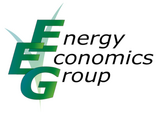
Project description
The pinnacle of community driven urban energy transition are Positive Energy Districts (PED). They improve energy efficiency, integrate local renewables and excess heat more effectively and enable interaction with the energy and nonenergy sectors like mobility, ICT and industry. A crucial, and often neglected complication is that PEDs are in constant evolution. This is due to ever-evolving changes in their environment: social context, legislation, energy market, increased electric vehicles, etc. As such, there is a strong analogy with the theory of evolution. Although the DNA between PEDs varies, the implementation and evolution of different PEDs is not a process of chance: the environment determines the probability of success in the urban energy transition. The PEDvolution project paves the way for cross-sectoral integration of ever-evolving PEDs. This over a duration of three years, consisting of three consecutive phases: analyse, co-develop and demonstrate. European pioneers in PED conceptualisation, implementation and tool development will co-develop and implement seven interoperable solutions accommodating the constant evolution of PEDs: 1) PED Design and Planning Toolset, 2) PED Readiness Assessment, 3) Dynamic DecisionSupport Guideline forPED Development, 4)PED Energy Manager, 5) Data Exchange, Integration and Interoperability Platform, 6) PED Business Models, 7) Social Innovation tool. These PEDvolution solutions will evaluate and improve the ‘PED Readiness Level’ according to the four genes of the PED genotype: social, technology, interoperability, and market. These are influenced by their interaction within thePED and its environment (PED phenotype). At least six real-life PEDs across Europe, will provide a demonstration and validation environment for the solutions, paving the way for replication, upscaling and mainstreaming.




